Google’s new AI algorithm predicts heart disease by looking at your eyes
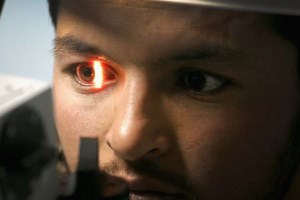 Scientists from Google and its health-tech subsidiary Verily have discovered a new way to assess a person’s risk of heart disease using machine learning.
Scientists from Google and its health-tech subsidiary Verily have discovered a new way to assess a person’s risk of heart disease using machine learning.
By analyzing scans of the back of a patient’s eye, the company’s software is able to accurately deduce data, including an individual’s age, blood pressure, and whether or not they smoke. This can then be used to predict their risk of suffering a major cardiac event — such as a heart attack — with roughly the same accuracy as current leading methods. The algorithm potentially makes it quicker and easier for doctors to analyze a patient’s cardiovascular risk, as it doesn’t require a blood test.
Read moreHere’s a closer look at Apple’s secret self-driving car
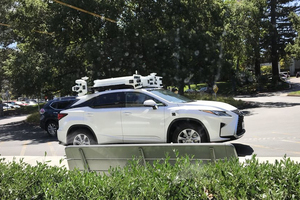 A new video of what would appear to be one of Apple’s “Project Titan” self-driving cars was posted to Twitter last night, and it looks much different than it did the last time we saw it. The car appears to be outfitted with standard third-party sensors and hardware, including (count ‘em) six Velodyne-made LIDAR sensors, several radar units, and a number of cameras — all encased in Apple-esque white plastic.
A new video of what would appear to be one of Apple’s “Project Titan” self-driving cars was posted to Twitter last night, and it looks much different than it did the last time we saw it. The car appears to be outfitted with standard third-party sensors and hardware, including (count ‘em) six Velodyne-made LIDAR sensors, several radar units, and a number of cameras — all encased in Apple-esque white plastic.
The video was captured by someone who knows his stuff about autonomous vehicles: MacCallister Higgins, co-founder of self-driving startup Voyage (that just launched its own pilot ride-hailing project in a San Jose retirement community).
Read moreSkynet in China: Real-life 'Person of Interest' spying in real time
 If you’ve seen the TV series "Person of Interest," then you might recall that during the opening narration from Season One, Harold Finch would say, “You are being watched. The government has a secret system, a machine that spies on you every hour of every day. I know because I built it. I designed the machine to detect acts of terror but it sees everything.”
If you’ve seen the TV series "Person of Interest," then you might recall that during the opening narration from Season One, Harold Finch would say, “You are being watched. The government has a secret system, a machine that spies on you every hour of every day. I know because I built it. I designed the machine to detect acts of terror but it sees everything.”
I was reminded of that when I saw a GIF that appears as if it could be a Chinese version of the show. It is a CCTV clip showing current surveillance in China. Thanks to artificial intelligence, China’s sadly named “Sky Net” system demonstrates just how creepy real-time surveillance can be.
Read moreArtificial intelligence just made guessing your password easier
 Last week, the credit reporting agency Equifax announced that malicious hackers had leaked the personal information of 143 million people in their system. That’s reason for concern, of course, but if a hacker wants to access your online data by simply guessing your password, you’re probably toast in less than an hour.
Last week, the credit reporting agency Equifax announced that malicious hackers had leaked the personal information of 143 million people in their system. That’s reason for concern, of course, but if a hacker wants to access your online data by simply guessing your password, you’re probably toast in less than an hour.
Now, there’s more bad news: Scientists have harnessed the power of artificial intelligence to create a program that, combined with existing tools, figured more than a quarter of the passwords from a set of more than 43 million LinkedIn profiles. Yet the researchers say the technology may also be used to beat baddies at their own game.
Read moreThis AI program can make 3D face models from a selfie
 A group of AI experts from The University of Nottingham and Kingston University managed to create a new method by which two-dimensional images of faces can be converted into 3D using machine learning.
A group of AI experts from The University of Nottingham and Kingston University managed to create a new method by which two-dimensional images of faces can be converted into 3D using machine learning.
The researchers trained a convolutional neural-network to perform the task by feeding it tons of data on people’s faces. From there it figured out how to guess what a new face looks like from an previously unseen pic, including parts that it can’t see in the photograph. The 3D computer vision project really has to be seen to be believed, and you can try it out in a nifty demo here. The website doesn’t really do the full technology justice, but it’s bloody cool.
Read moreCIA developing AI that could track your social media posts to gather intelligence
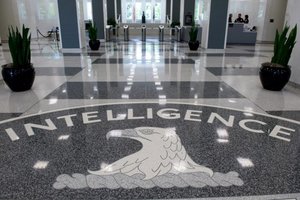 The CIA is making use of several artificial intelligence programs that access, gather, and retrieve social media intelligence for the agency.
The CIA is making use of several artificial intelligence programs that access, gather, and retrieve social media intelligence for the agency.
In a statement reported by Futurism, Dawn Meyerriecks, the deputy director for technology development with the CIA said at the Intelligence and National Security Summit that the agency had over 137 AI projects as part of "In-Q-Tel" where a large portion of it is created through collaborations with Silicon Valley firms. With greater ability and power to analyse data, AI programs thus created have reportedly taken to social media platforms and "comb through" all public records –all the stuff that is posted by people using social media.
Read moreElon Musk says we need to regulate AI before it becomes a danger to humanity
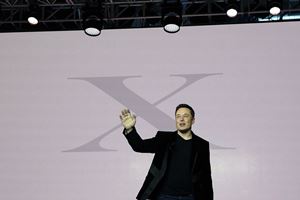 Elon Musk’s thoughts on artificial intelligence are pretty well known at this point. He famously compared work on AI to “summoning the demon,” and has warned time and time again that the technology poses an existential risk to humanity.
Elon Musk’s thoughts on artificial intelligence are pretty well known at this point. He famously compared work on AI to “summoning the demon,” and has warned time and time again that the technology poses an existential risk to humanity.
At a gathering of US governors this weekend, he repeated these sentiments, but also stressed something he says is even more important: that governments need to start regulating AI now. “I have exposure to the very cutting edge AI, and I think people should be really concerned about it,” Musk told attendees at the National Governors Association summer meeting on Saturday.
Read moreMicrosoft's next big Windows update will use AI to fight malware
 Windows Fall Creators Update will come with a hefty serving of security upgrades, made timely by the increasingly rampant cyberattacks targeting the platform these days.
Windows Fall Creators Update will come with a hefty serving of security upgrades, made timely by the increasingly rampant cyberattacks targeting the platform these days.
Microsoft has revealed how the upcoming major update will level up Windows Defender Advanced Threat Protection, a Win 10 enterprise service that flags early signs of infection. Windows enterprise director Rob Lefferts said the upgrade will use data from Redmond's cloud-based services to create an AI anti-virus that will make ATP much better at preventing cyberattacks.
Read moreTim Cook says Apple focused on autonomous systems in cars push
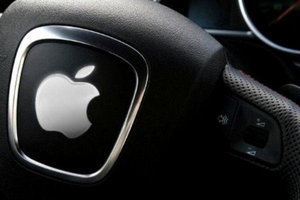 After years toiling away in secret on a car project, Tim Cook has for the first time elaborated on the company’s plans in the automotive market. “We’re focusing on autonomous systems,” Cook said in a June 5 interview.
After years toiling away in secret on a car project, Tim Cook has for the first time elaborated on the company’s plans in the automotive market. “We’re focusing on autonomous systems,” Cook said in a June 5 interview.
“It’s a core technology that we view as very important.” He likened the effort to “the mother of all AI projects,” saying it’s “probably one of the most difficult AI projects to work on.” The prospect of self-driving cars has seen a slew of technology companies push into the auto industry, according to McKinsey & Co. Alphabet’s Waymo unit has signed partnerships with Fiat Chrysler Automobiles NV and Lyft to develop the technology.
Read moreThis French school is using facial recognition to find out when students aren’t paying attention
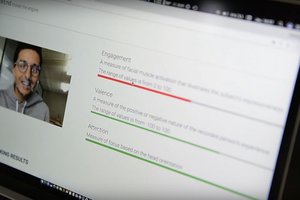 A business school in Paris will soon begin using artificial intelligence and facial analysis to determine whether students are paying attention in class. The software, called Nestor, will be used two online classes at the ESG business school beginning in September.
A business school in Paris will soon begin using artificial intelligence and facial analysis to determine whether students are paying attention in class. The software, called Nestor, will be used two online classes at the ESG business school beginning in September.
LCA Learning, the company that created Nestor, presented the technology at an event at the United Nations in New York last week. The idea is to use the data that Nestor collects to improve the performance of both students and professors. The software uses students’ webcams to analyze eye movements and facial expressions and determine whether students are paying attention to a video lecture.
Read moreAxarhöfði 14,
110 Reykjavik, Iceland















